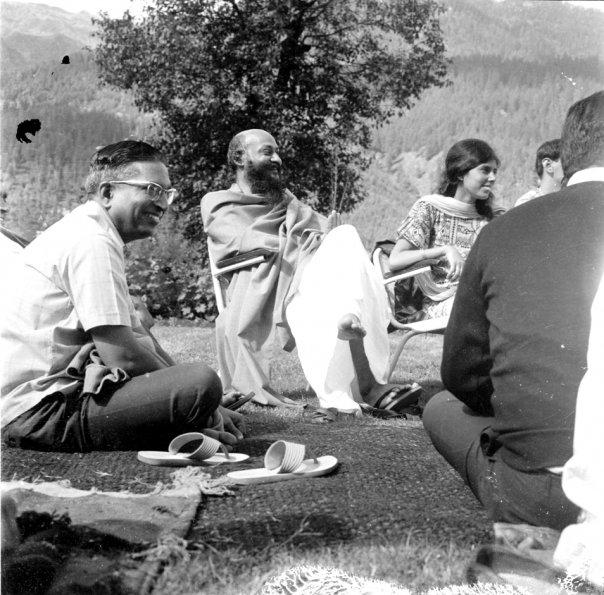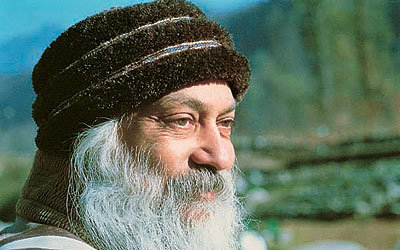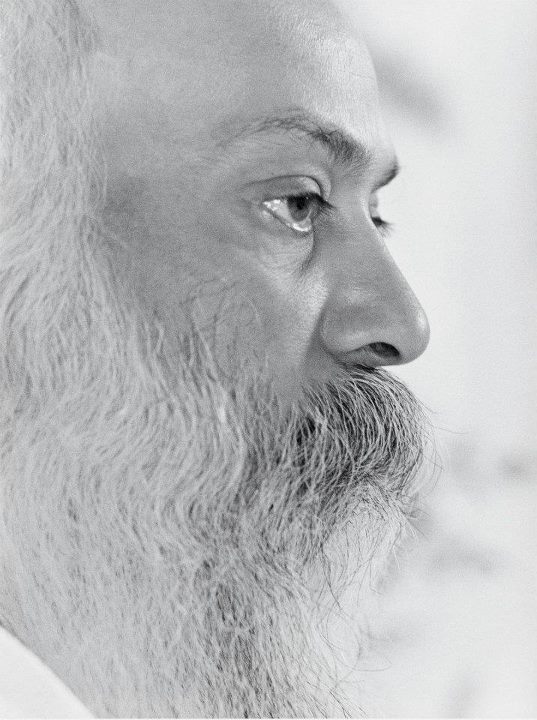Osho Quotes on Wholeness
- By health Buddha means wholeness. Health comes from the same root as ‘healing’. A healed person is a healthy person, a healed person is a whole person. By “health” Buddha does not mean the ordinary, medical meaning of the term; his meaning is not medicinal, it is meditational — although you will be surprised to know that the words ‘meditation’ and ‘medicine’ both come from the same root. Medicine heals you physically, meditation heals you spiritually. Both are healing processes, both bring health. But Buddha is not talking about the health of the body; he is talking about the health of your soul. Be whole, be total. Don’t be fragmentary, don’t be divided. Be an individual, literally: indivisible, one piece.
- This wholeness can only be achieved by becoming totally conscious of oneself. The darkness of the unconscious is to be penetrated and transformed into light. And meditation is the method.
- Health means healing the wounds. It comes from the root which means healing. If your physiology needs some healing then medicine is offered. If your spirituality needs some healing, then meditation is offered. Strangely, health comes from the same root from which comes the word wholeness. Health means the body is whole, nothing is missing. And from wholeness comes the word holy: the spirit is whole, nothing is missing. Similarly, the word medicine and the word meditation come from the same root — that which cures. Medicine cures wounds in your physiology, and meditation cures wounds in your spiritual existence, in your ultimate being.
- There is no miracle except one, and that is the miracle of meditation which takes you away from the mind. And the heart is always welcoming you. It is always ready to give you a way, to guide you towards your being. And the being is your wholeness, it is your ultimate well-being.
- If you drop the ego, there is a possibility you may become whole. The moment you become whole, you become holy. Then you are healed; then all wounds disappear. Then you are perfect in your total aloneness. It is not comparative — that you are more perfect than others. No. You are simply perfect; you are a unique piece; there is nobody else like you; you are only like yourself. In your wholeness you are perfect, and a deep contentment comes. It becomes a climate around you.
- Your religions program their minds, that they go on clinging to Christianity or Judaism or any other -ism, not knowing that except truth there is no health and there is no wholeness and there is no freedom. And the truth is found in meditation, not in prayers, not in churches, not in the BIBLE, not in the KORAN. It is found when you are silent, utterly silent. In that purity of awareness begins a totally new kind of life, ecstatic.
- You are human, in a certain time, in a certain space, with certain limitations. Accept those limitations. Perfectionists are always on the brink of madness. They are obsessed people — whatsoever they do is not good enough. And there is no way to do something perfectly — perfection is not humanly possible. In fact, imperfect is the only way to be. So what do I teach you here? I don’t teach you perfection, I teach you wholeness. That is a totally different thing. Be whole. Don’t bother about perfection. When I say be whole, I mean be real, be here; whatsoever you do, do it totally. You will be imperfect but your imperfection will be full of beauty, it will be full of your totality. Never try to be perfect otherwise you will create much anxiety. So many troubles are there already; don’t create more troubles for yourself.
- Perfectionism is a neurosis. It is an illness. And the more you try to become perfect, the more frustrated you will become. The goal of perfection has led the whole of humanity towards madness; the earth has almost become a madhouse. I don’t teach perfection. What do I teach? I teach wholeness, not perfection. Be whole; be total; but don’t think about perfection. Be whole. Whatsoever you do, do it totally. What is the difference? When you do it totally you are not worried about the result. You did it totally. You are finished. More you could not do. You are not holding anything; you have put all your energy in it, you were whole in it. Now if you fail, you fail. If you succeed, you succeed. But whether you fail or you succeed, you are fulfilled all the same. A deep contentment arises because you have done whatsoever you could do.
- My approach is not that of a perfectionist; I am utterly against it. It has destroyed humanity. It has driven the whole of humanity into a kind of madness. The whole idea has to be dropped. We have to learn a new language — the language of wholeness. And I call a person holy when he is whole in whatsoever he does. If you are doing cleaning, then do it totally. Then be utterly lost in it, and it will give you as much as a musician gets when he gets lost totally in his music or a dancer gets when he is utterly lost into his dance. Even cleaning the floor or cooking the food or taking the bath or going for a morning walk — anything. Let this be your foundation of life: that whatsoever you are doing at the moment, be utterly lost into it. Nothing of you should be left behind. Don’t keep any reservations. And you will come out of it immensely benefited, enriched. I am as fallible as anybody with only one difference: I am totally fallible!
- Life consists of opposites, remember. And don’t try to judge; just live the whole, whatever it is. I teach you wholeness, and you go on judging parts. Parts are not of any use. It is the whole, where parts lose their personalities and function in the way an orchestra functions. I myself have never thought that anything is good or anything is bad. Not for a single moment have I thought that anything is bad or good; they are both together and they can exist only together. If you want to live, live them in their togetherness. The people who are afraid of their togetherness started teaching, “Renounce life, escape from life, because here you cannot avoid the bad. Whatever you do, even if you do good, you cannot avoid the bad.”
- Life is a harmonious whole. Everything is connected with everything else. The smallest leaf of grass is connected to the farthest star, a star you cannot see. Harming a small grass flower, you are harming the whole existence, because nothing is separate. Contentment brings you insight into this wholeness. And I call only that man holy who understands this wholeness of everything. I call that man holy who can understand that sex and silence are not separate, that sex and meditation are not separate. Nothing is separate. Everything is woven into everything else. All colors are mixing with each other.
- I want you to drop judgment and live a life without judgment, in its wholeness. And you will be surprised that wholeness is neither good nor bad. Wholeness is transcendental; it is beyond good and evil.
- Intellect and meditation, meeting together, growing together, give you the wholeness of being.
- The idea of perfection is absolutely different, diametrically opposite — not even different, opposite. The perfectionists will say, ‘Never be angry; always be compassionate. Never be sad; always be happy.’ He chooses one polarity against the other. In wholeness we accept both the polarities: the lows and the highs, the ups and the downs. Wholeness is totality. And you have to see the whole nonsense of the ego, otherwise it can come in from the back door. If I say, ‘Now become PERFECTLY egoless,’ you will have to prove that there exists nobody who is more egoless than you.
- The perfectionist is bound to be a neurotic, he cannot enjoy life till he is perfect. And perfection as such never happens, it is not in the nature of things. Totality is possible, perfection is not possible. That is the fundamental of the holistic approach. And there is a tremendous difference between perfection and totality. Perfection is a goal somewhere in the future, totality is an experience herenow. Totality is not a goal, it is a style of life. If you can get into any act with your whole heart, you are total. Totality brings wholeness and totality brings health and totality brings sanity.
- When ego sees the point that the whole game of ego is absurd, ego disappears. Nothing is left behind. There is a wholeness but there is no perfection. There is totality but there is no perfection.
- Man is half, woman is half. When love happens, wholeness happens.
- My attitude is that of accepting man in his totality, in his wholeness. And it has to be understood that once you accept the totality of man, you have to understand the law of dialectics. For example, the whole day you work hard — in the fields, in the garden — you perspire. In the night you will have a beautiful sleep. Don’t think that because the whole day you have been working so hard, how can you sleep in the night? — it is so against your whole day’s work. It is not against. The whole day’s hard work has prepared you to relax; the night will be deep relaxation.
- It is strange that the word health, and the word holy both come from `wholeness’. When you are feeling one with wholeness all greed disappears.
- Meditation would not have been needed if people had remained in their essential childlikeness. Do you know the root of the word `meditation’? — it comes from the same root as `medicine’. It is a medicine. But the medicine is needed only if you are sick. Meditation is needed if you are spiritually sick. Childlikeness is your spiritual health, your spiritual wholeness.
- Meditation can be translated as no-mind; then things will be simple. Either something comes out of the mind, or something comes out of no-mind. Mind is noise, it is craziness, insanity. No-mind is silence, health, wholeness. Mind cannot create anything which is not poisonous. And out of no-mind there is no possibility of anything arising which will serve death.
- Peace means a state of inner health, a state of inner wholeness, where you are not torturing others, not torturing yourself, where you are neither interested in happiness nor in unhappiness. You are simply interested in being absolutely silent, calm, quiet, collected, integrated.
- You ask me, “What is madness?” Madness can be defined as either falling below the mind or falling above the mind. Falling below the mind is sickness; falling above the mind is health, wholeness.
- Sanskrit has two words VYADI and SAMADHI. VYADI means “sickness of the soul” and SAMADHI means “health and wholeness of the soul.” But these are existential meanings. A man who has not experienced samadhi is spiritually sick. He may be bodily fit, but he is not spiritually fit. It is possible a man may be bodily sick, but he can attain to samadhi. Even at the last moment of your life, you can attain to samadhi. Your spiritual being comes in all its health, wholesomeness. Even if for a single moment you have known samadhi, you have known the greatest secret in existence.
- A poet, an artist, a painter, is on the way to becoming a mystic. All artistic activity is on the way towards becoming religious. When you are active, writing a poem, you are in the mind. When the poem is born you are spent, and the mind takes rest. Use these moments to fall into your being. Don’t call it emptiness; call it wholeness, call it being, call it truth, call it God. And then you will be able to feel the benediction of it.
- Zen is a science to explore the inner. Invite Zen masters, Zen mystics; that will be inviting health and wholeness.
- I don’t teach perfection. Perfection simply creates neurosis in people. Perfectionists are neurotics; they drive themselves crazy in trying to be perfect, because they are trying to do the impossible. I teach totality; I teach wholeness, not perfection. Be total in whatsoever you are doing. Be total. If you are angry, then be totally angry. If you are in love, then be totally in love. If you are sad, then be totally sad. Don’t be halfhearted in anything. That is a totally different approach towards life.
- This wholeness is the benediction, the beatitude, the blessing, that happens to a meditative mind, that happens in meditation. Meditation means wholeness. So remember, meditation should be fun, it should not be like work. You should not do it like a religious man, you should do it like a gambler. Play, do it for fun, like a sportsman not a businessman! It should be fun, and then all the skill will be available, then it will flower by itself. You will not be needed. No effort is needed. Simply your whole being has to be available, your whole energy has to be available. Then the flower comes by itself.
- Meditation is not of the body, not of the mind, not of the soul. Meditation simply means your body, your mind, your soul, all functioning in such a harmony, in such wholeness, humming beautifully; they are in a melody… one. Your whole being — body, mind, soul, are all involved in meditation. That’s why my effort here is to start every meditation with the body. That is something new.
- I am not a perfectionist. I don’t bother a bit about being a perfectionist. I am a wholistic person. I like things in their wholeness, but I never bother about their perfection. Nothing can be perfect in the world — and in fact nothing should be perfect in the world, because whenever a thing is perfect it is dead.
- Sva means self, samvado means communion — to be in communion with oneself. That’s the whole process of meditation. People are divided against themselves; everybody is living a split life. The difference is only of degree, otherwise everyone on this earth is schizophrenic. Nobody is really healthy because health means wholeness and nobody is whole; everybody is divided.
- You can continue that sitting silently doing nothing for at least one hour every day. And one active one you choose — Dynamic will do; in the morning you do the Dynamic, in the evening you do the silent and that will be enough. Both are needed to give you a balance, because man has two sides, active and passive. If one simply meditates actively then the passive side remains undernourished. And if one meditates only passively then the active side remains undernourished, and that creates a lopsidedness. Man has to become whole, and the wholeness is possible only through balancing. Your feminine, your masculine, your yin and your yang, should both be nourished. So one active meditation will do — Dynamic or Kundalini or dancing — anything, but one. And then stick to it, don’t change it every day. At least for the time you will be away stick to it, because if you don’t stick to one method you will never go into depth. It is as if you want to dig a well but you dig here one day, another day somewhere else, the third day some other place. You will destroy the whole land but there will never be any well. You have to stick to one spot and go on digging. Howsoever long it takes, one thing is certain, that one day or other you will come to the source of water. That is there. Choose a single method, one for active and one for passive. Your passive method is perfectly good. That’s what real zazen is: just sitting, feeling you are nobody, a nothingness, a silence, an absence. Relax into that absence. disappear into that completely not even leaving a trace behind. That is good for your feminine side. It will give you fifty percent of meditation; fifty percent more will be needed. That has to come out of Sufi dancing, Nataraj, Kundalini; or Dynamic, or anything done very actively.



